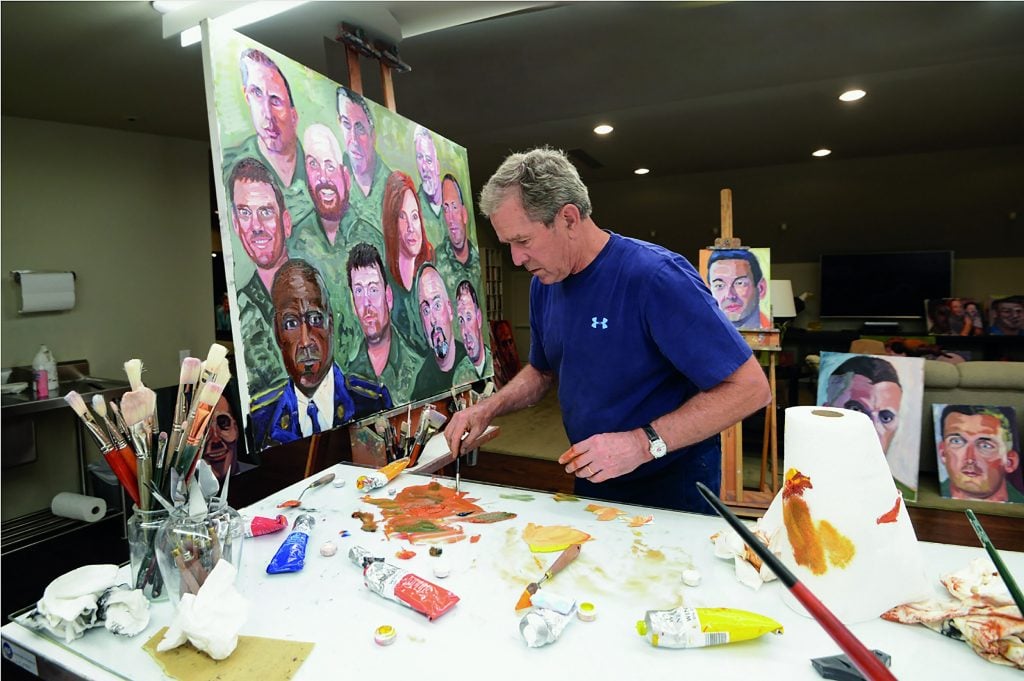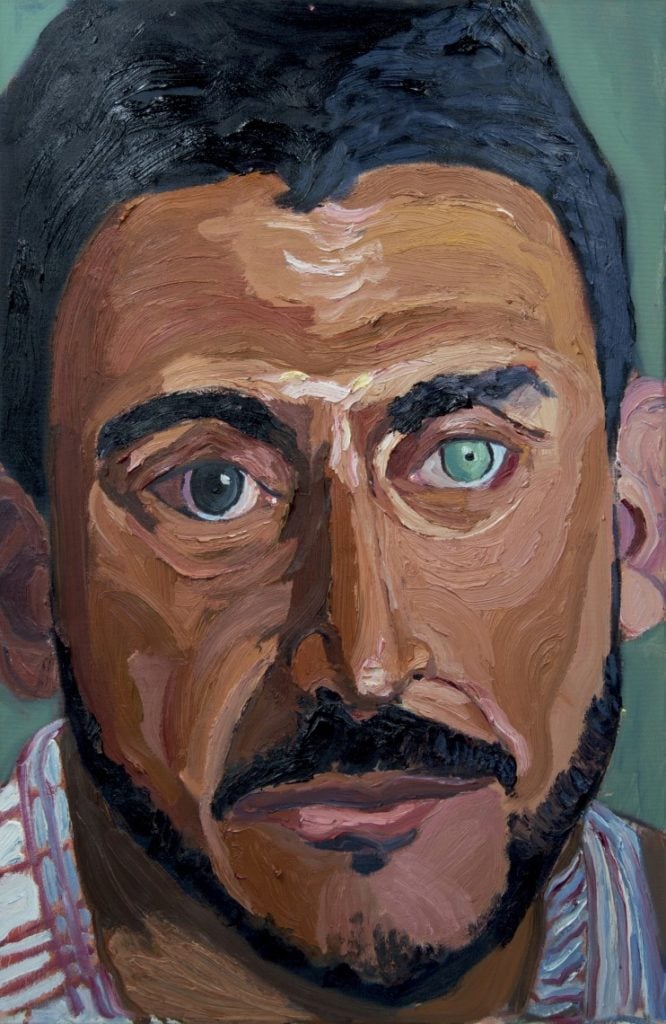Art & Exhibitions
A Disney Resort Will Show George W. Bush’s Portraits of Veterans
Critic Peter Schjeldahl once referred to the works as “painted atonements.”

Critic Peter Schjeldahl once referred to the works as “painted atonements.”

Artnet News

In time for National Military Appreciation Month in June, EPCOT’s American Adventure Pavilion, at the company’s Walt Disney World Resort in Florida, is mounting an exhibition of former president George W. Bush’s paintings of surviving military veterans. “Portraits of Courage: A Commander in Chief’s Tribute to America’s Warriors” includes more than 60 portraits, each accompanied by “the inspiring story of the veteran depicted” as written by Bush. The exhibition is organized in collaboration with the George W. Bush Institute.
“Celebrating those who give so much to our country has been part of the fabric of The Walt Disney Company throughout our 100-year history,” said Josh D’Amaro, chairman of Disney Experiences. “We’re grateful to the Bush Institute for allowing us to feature this special collection and share it with our guests.”
Bush’s painting hobby first came to light when a Romanian hacker released photos of Dubya’s daubings in February 2013 (later earning a four-year jail sentence for the act). The paintings were also the basis of a 2017 book by the same name, which became a #1 New York Times bestseller. In 2019, he set out to follow up with a book of portraits of immigrants; as Artnet News’s Taylor Dafoe dryly commented when it was published a year later, referring to a notorious press conference at which W. landed on an aircraft carrier and prematurely declared victory in the Iraq War, “Well, mission accomplished.”

George W. Bush, Army Sgt. 1st Class Michael R. Rodriguez. Courtesy of Grant Miller/George W. Bush Presidential Center via Crown Publishing.
The exhibition will stay on view for a year. In addition to displaying the portraits, it will serve as a place for veterans to access information about free, high-quality mental and brain health care via a program called Check-In. Thousands of veterans of the post-9/11 wars are homeless; many suffered traumatic brain injuries as a result of the improvised explosive devices, or IEDs, that were used to attack them as they patrolled Iraqi cities.
Bush’s paintings of veterans were widely derided as hypocritical when they emerged; in the New Yorker, Peter Schjehldahl wrote, “Having obliviously made murderous errors, Bush now obliviously atones for them. What do you do with someone like that?” By the accounts of his painting instructors, Bush takes the activity seriously; he counts Lucian Freud, Wayne Thiebaud, Jamie Wyeth, Ray Turner, Fairfield Porter, and Joaquín Sorolla as influences.
The United States military operation in Iraq began in 2003, in the wake of the 9/11 terrorist attacks, an armed conflict that spanned eight years. About 7,000 U.S. service members died in post-9/11 war operations according to the Watson Institute for International and Public Affairs at Brown University, which also notes more than 30,000 suicides among service members and veterans of the post-9/11 wars. While it’s difficult to know exactly how many Iraqis died, the organization Iraq Body Count records some 113,728 civilian deaths. Brown University’s Costs of War Project estimates that the conflict ran up a bill of $6.4 trillion.
“Portraits of Courage” has been touring the U.S. since 2017, opening at the George W. Bush Presidential Center on the SMU campus in Dallas, Texas, before traveling to venues including Crystal Bridges Museum of American Art in Arkansas, and the Museum of the Southwest in Texas. Speaking to CNN at the launch of the exhibition, Bush said of his painting practice: “It keeps me active, so I’m not on the couch chewing potato chips all the time. It’s one of the great learning experiences.”